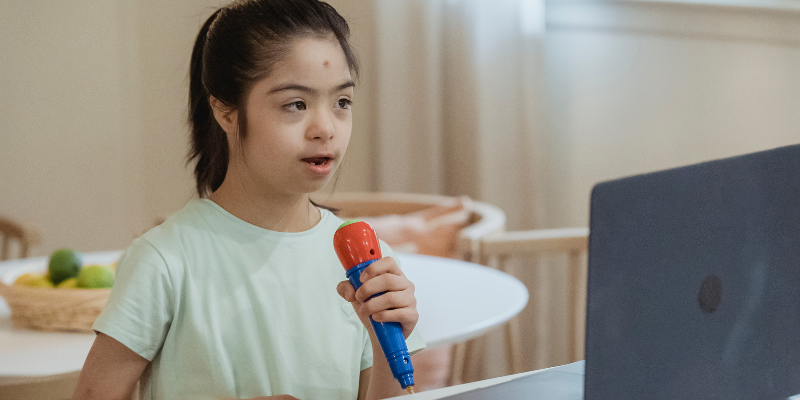Autism Spectrum Disorder is a neurodevelopmental issue that affects the communication and interaction of the affected person with others. Autism is a spectrum, which means the person who has autism will have a lot of strengths, challenges, and characteristics. Medical science considers it a proper disorder, while people consider it a different way of living. In this article, we will know all about autism so that we can deal with the people with autism around us.

We can say autism is a complex condition in which there is a persistent challenge of restricted interests, social communication, and repetitive behaviour. Autism is a lifelong condition; however, the need for support and service due to autism challenges varies from individual to individual. According to research, one in thirty-six children have autism. Sometimes, people with autism have unique differences and strengths.
Signs and symptoms of Autism vary from one person to another. However, here are some symptoms of the Autism Spectrum at an early age.
1. No pointing or babbling by age one.
2. Loss of previously acquired language skills
3. No two words sentence at age two.
4. No words till the age of 16 months.
5. Limited eye contact
6. Repetitive movements
Here are the challenges that persons with autism face.
1. A person with autism faces difficulty in building his social interactions.
2. They have an obsessive focus on specific topics.
3. They face challenges in managing their emotions.
4. They have a heightened sensitivity to sensory stimuli. These stimuli include bright lights or loud noises.
5. They engage in repetitive movements like rocking, lining up objects, and hand flapping.
Parents and caregivers can notice the early signs of Autism spectrum disorder. However, proper care becomes essential when children age two or three. In some cases, autism-related symptoms are so mild that they cannot be diagnosed until the children start school.
A developmental paediatrician, adolescent psychiatrist, or child neurologist evaluates children to diagnose autism. Evaluation can involve interviews with teachers and children's caregivers. Pediatricians also interact with children in a structured manner.
In some cases, additional medical tests are also carried out to assess the disorder in depth. Sometimes, there are ambiguous cases of autism in which diagnosis can be deferred. However, early diagnosis of Autism Spectrum disorder can improve the overall functioning of the affected child.
While there is no proper treatment for autism, early support and care can make a considerable difference in the development of children. There are a lot of therapies and evidence-based interventions that meet the unique needs of an Autistic child. Here are some standard therapies for Autistic children.
Speech therapists help children improve their communication skills, including language comprehension, social communication, and speech articulation.
Autism can be challenging for the whole family of a child. Most siblings find it difficult to interact with their autistic brother and sister. So, family members can get professional help to learn how to deal with their autistic children.
Occupational therapists help improve sensory processes and motor skills. They also help improve daily life activities to enhance people's participation.
This therapy increases children's good behaviour and reduces their challenging behaviour. It involves systematic teaching methods and positive reinforcement.

Psychiatrists also evaluate children with autism for other medical conditions and prescribe medications in some cases. Let's take the example of irritability related to autism. This irritability cannot respond to behavioural interventions. However, it can be reduced by aripiprazole and risperidone, which the Food and Drug Administration approves.
1. Try to learn as much as possible about autism and the unique needs of your kid with autism.
2. Contact with parents of other kids with autism.
3. Seek professional help if you cannot handle your kids' moods and behaviour.
4. As autism affects the whole family. Pay attention to the emotional health of your family.
5. Understand the educational rights of your ADHD child.
6. Modify your home to accommodate your child's sensory sensitivities.
7. Reward desirable behaviours with praise, tokens, or privileges.
Schooling for autistic children depends upon their unique needs and available resources. In the USA, the Individuals with Disabilities Education Act gives special children the right to free education. Many schools under this act provide education to Autistic children.
As caregivers or parents, you do a great job in the journey of your children with autism. You can help your children to reach their full potential by giving them proper attention and seeking professional help. When we embrace neurodiversity, we can create a comfortable environment for special children. Understanding the complexities of autism marks the first step towards building a supportive environment for your autistic loved ones. Do not hesitate to contact a professional to help educate yourself about autism. It can make your child's journey with ADHD easier.